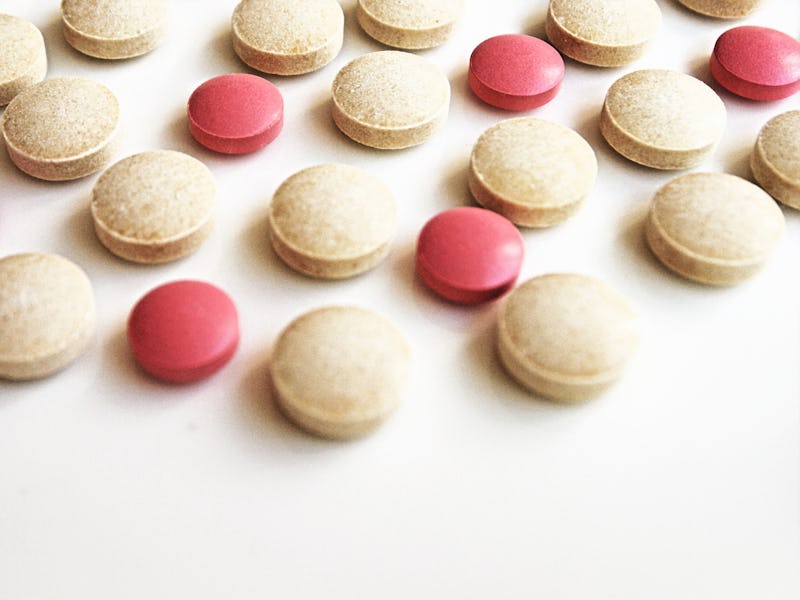Can Americans Harness Their Weird Susceptibility to the Placebo Effect?
Non-drugs are getting very close to being as effective as drugs -- at least within our borders.

When it comes to treating illness, mind really trumps matter much of the time. This is more true in America than anywhere else. According to a recent report in Nature, Americans’ responses to the placebo drugs is increasingly positive. As a result, it’s getting harder and harder for U.S. drug companies to distinguish between drugs that work and drugs that trial participants think work. It’s a weird phenomenon, but not necessarily indicative of anything bad. Treatment, after all, is about what works, not why it works.
The new study’s analysis of 84 clinical trials of pain medications showed a surprising trend: Only participants in American drug trials showed an increased placebo response. The pattern is thought to stem from the relative complexity and length of U.S. drug trials, which, the authors of the paper suggest, increase participants’ expectations of how effective the drug will be. According to Dr. Tor Wager, a professor at the University of Colorado’s Department of Psychology and Neuroscience who studies all things placebo, harnessing the power of expectation is the way to weaponize sugar pills for good.
Wager is not saying that physicians will someday prescribe placebos to patients and hope their minds will do the healing. That would just be unethical and, obviously, mostly ineffective. But what the medical community could do ethically, he told Inverse, is consider the psychological “ingredients” that make up the placebo effect and apply those to existing treatments.
“When you’re in a trial and you’re taking a placebo drug, you’re engaging in the healing process,” he points out. “We’ve developed ways of having a person work with their own mind to help get better. In those things, like cognitive behavioral therapy or acceptance-based therapies, or mindfulness, or self-affirmation or expressive writing — all those things can work and have real benefits for people.”
Essentially, Wager is arguing that we’ve accidentally discovered a protocol for prescriptions that makes real drugs more effective from their users’ perspectives. “The active ingredients of placebo,” he says, “are the active ingredients of those therapies.”
According to Scott Schafer, a graduate student at the University of Colorado Institute of Cognitive Science who co-authored a paper with Wager earlier this year, drug developers and physicians alike need to keep in mind that a treatment’s effectiveness is the sum of the actual drug’s effect plus the placebo effect. The mental element of getting better is an important factor that’s often wrongly overlooked. “You can look for better drugs and improve the drug effect,” Schafer told Inverse, “Or you can use psychological manipulation or previous conditioning to up the placebo effect.”
To make his point, Schafer describes a study in which participants received pain medicine but weren’t necessarily aware of it. “When subjects were receiving the medicine without their knowledge, it was way less effective,” he said. The paper he published together with Wager discovered that placebo drugs worked even when participants knew they were being tricked, as long as they’d been conditioned beforehand to associate the placebo with healing effects.
But even with proof that placebo effect-hacking, psychology-based therapies work, will they ever be adopted by a population that’s fully embraced the pill-as-treatment paradigm? Is the outsized American placebo effect, paradoxically, dependent on placebo-style therapies not being adopted?
“We’ve been told to want pills,” says Wager. “I’m not sure that people actually want the pill as much as that has been the go-to solution for many things. Over the last decade, a lot of people have come to realize that it’s not a good answer or a complete answer.”
At this point, there’s no denying that the placebo effect is real — and effective — but the goal of harnessing for therapeutic means is not to supplant pills, at least not altogether. If anything, it’s meant to broaden the existing treatment paradigm into one that takes a more holistic approach. While Wager is optimistic about the future of psychology-based treatment, he realizes that, ironically, psychology is the limiting factor when it comes to acceptance.
“It’s a big world out there. People still think psychological therapy means that something isn’t real,” he says.
“That’s the wrong message.”